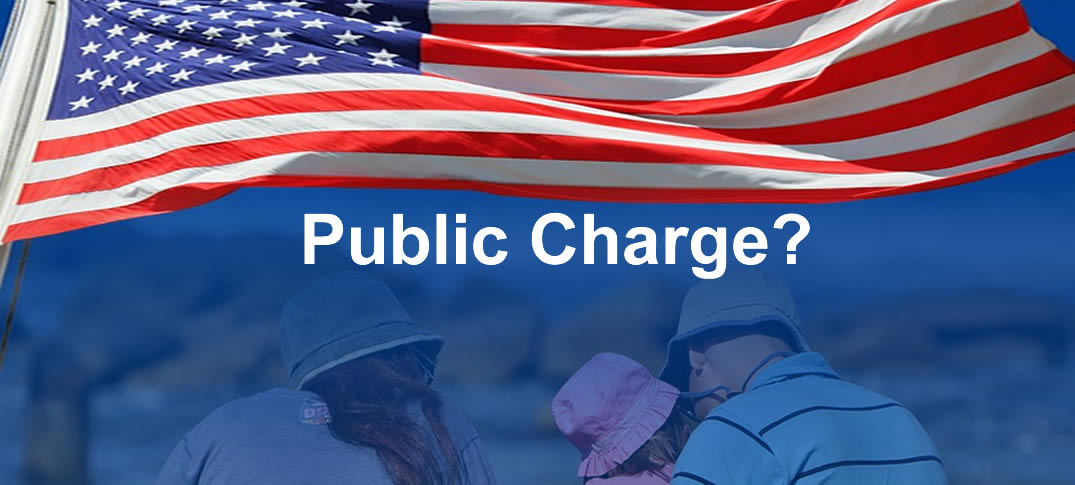
By Emily Ruskin, UnidosUS Immigration Policy Analyst
On August 14, the Department of Homeland Security (DHS) published a final rule on public charge, effective October 15. The rule broadens the ‘public charge test’ immigration officials use to determine who qualifies for a green card (Lawful Permanent Resident status, LPR) or extensions to certain visa classes. The rule expands criteria which count against eligible immigrants in their applications, including having a critical health condition, one’s age, or accessing public benefits, such as Medicaid or SNAP (foods stamps). In essence, the new rule creates a wealth test to block low-income immigrants from obtaining green cards.
This is by design; according to the Washington Post, Trump aide Stephen Miller “views the public charge rule as vital to his goal of reducing immigration, and he has told colleagues it will have ‘socially transformative effects’ on American society.” UnidosUS warned of the administration’s racially charged shadow war on immigrant families in 2018.
The magnitude of the rule’s impact is still uncertain. A DHS analysis estimates the final rule will directly impact between 230,000 and 300,000 people in immigrant households due to forgoing or disenrolling from necessary public benefits. Still, the impacts could be broader: the rule gives case officers wide discretion to deny a green card application if they find the applicant “likely” to become a public charge in the future. The chill that criteria as vague and subjective as “likely” casts on immigrant communities will cause pervasive, indirect harm, and DHS knows it. The agency acknowledges the new rule could lead to worse health outcomes, increased rates of poverty and housing instability, and reduced productivity and educational attainment across the country, but does not estimate how far the chilling and spillover effects might reach. DHS’s analysis of the rule also omits the rule’s estimated economic impacts. Perhaps this is because the Fiscal Policy Institute estimates the ripple effects of the rule change could cost the American economy up to $33 billion and 230,000 jobs.
Nay-sayers may minimize the threat of public charge, pointing to earlier, harsher drafts as evidence that the final rule will have a limited impact. Given the chilling effects mentioned above however, many American children are at risk of losing critical supports: Medicaid/CHIP and SNAP are necessary lifelines for more than nine million U.S. born children in immigrant families. Pediatricians from Harvard warn the spill-over effects of public charge could prevent up to two million children with chronic illnesses and special health needs from receiving the care and nutrition they need; the doctors predict this could cause avoidable lifelong disabilities and even child deaths. The harm to children under public charge is part of a larger assault on nearly six million U.S. citizen children in immigrant families, which UnidosUS exposed in a March 2019 report.
Historical data back these fears. Following the Welfare Reform Act of 1996, immigrant enrollment in public assistance programs dropped drastically—between 20 and 60%, depending on the program—despite most immigrants remaining eligible for benefits. Confusion and fear were so widespread that U.S. citizen enrollments also dropped 14%. Indeed, chilling effects became so dire, the federal government issued tri-agency guidance to state governments in 2000 to reverse some of the damage. These chilling effects are well documented; in fact, they are published on the U.S. Department of Health and Human Services website. To resurrect such a damaging policy despite robust evidence of its harm indicates that indeed, the harm is intentional.
Early reports of chilling effects before the final rule was published already suggest the new rule poses a threat to millions of Americans and their families, especially low-income households and people of color. Evidence of chilling effects are especially clear in programs which are explicitly exempt from public charge, such as programs for children. Below are some examples of how the fear and confusion surrounding public charge are already harming families across the United States.
Negative Health Impacts
The lengths that this Administration will go to instill fear and chaos in our community has no bounds. The #PublicCharge puts American children living in mixed-immigration status at risk. Everyone should fight this unjust, bigoted, and counterproductive regulation. pic.twitter.com/2gIbKe7EWk
— UnidosUS (@WeAreUnidosUS) August 12, 2019